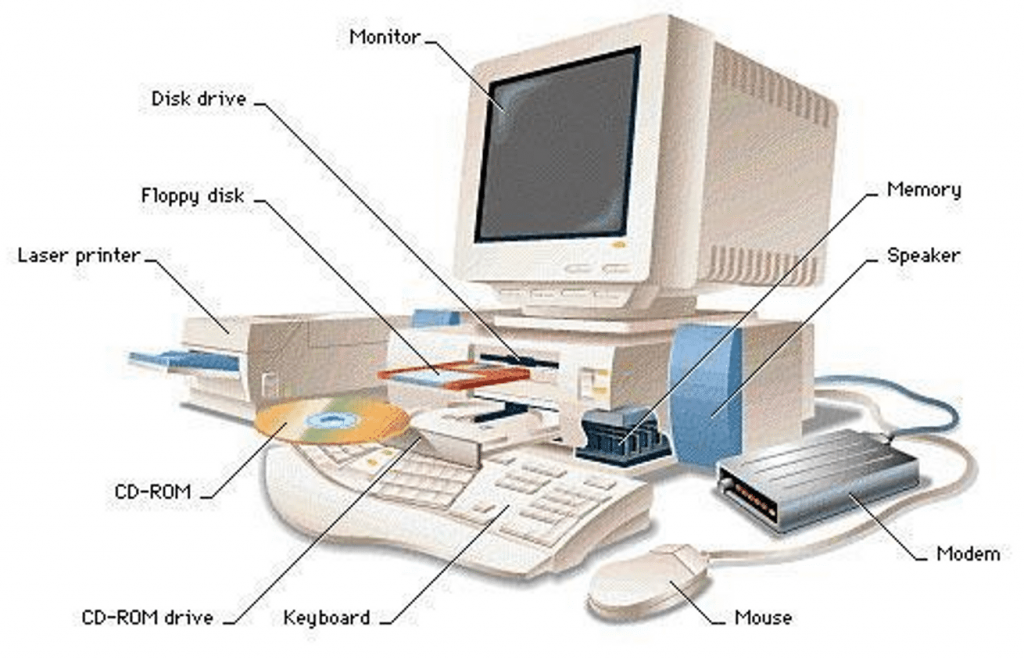Table of Contents
The term “PC” is a staple in the world of technology, but what exactly does it mean? PC stands for “Personal Computer,” a versatile device that has become integral to our daily lives. Consequently, understanding the full form of PC and its implications is essential for anyone navigating the modern digital landscape. This article delves into the definition, history, types, benefits, and common uses of personal computers. Moreover, we will incorporate additional transition words to ensure a smooth and engaging reading experience UID S.
What is the Full Form of PC?
First and foremost, the full form of PC is “Personal Computer.” Specifically, a personal computer is a multi-purpose device designed for individual use. Unlike mainframes or servers, which are intended for large-scale operations, personal computers are tailored to meet the needs of a single user. Consequently, PCs are found in homes, offices, schools, and many other environments Full Form of PC.
Additionally, personal computers can perform a wide range of tasks, including word processing, internet browsing, gaming, and more. Therefore, they are essential tools for both personal and professional activities. Furthermore, the advent of personal computers has revolutionized how we work, communicate, and entertain ourselves Full Form of PC.
A Brief History of Personal Computers
In addition to understanding the definition, it is important to explore the history of personal computers. To begin with, the concept of a personal computer dates back to the 1970s. The introduction of microprocessors made it possible to create affordable and compact computing devices. Consequently, several pioneering companies began developing personal computers.
One of the earliest and most significant milestones was the release of the IBM PC in 1981. This machine set the standard for personal computing and popularized the term “PC.” Moreover, it featured an open architecture, allowing third-party developers to create compatible software and hardware. As a result, the personal computer market experienced rapid growth.
Furthermore, the development of user-friendly operating systems, such as Microsoft Windows, and the proliferation of software applications contributed to the widespread adoption of PCs. Consequently, personal computers became indispensable tools for individuals and businesses alike.
Types of Personal Computers
In addition to their historical significance, personal computers come in various types, each serving different needs. To begin with, there are desktop PCs. These are traditional, stationary computers designed for use at a desk. Consequently, they typically offer powerful performance and ample storage space, making them ideal for tasks that require substantial computing power, such as gaming or graphic design.
Another common type is the laptop PC. These are portable computers that combine the functionality of a desktop PC with the convenience of mobility. Furthermore, laptops are designed to be lightweight and compact, allowing users to work from virtually anywhere. Consequently, they are popular among students, professionals, and travelers.
Additionally, there are all-in-one PCs. These devices integrate the computer components into the monitor, resulting in a sleek and space-saving design. Moreover, all-in-one PCs offer the performance of a desktop while minimizing clutter. Consequently, they are well-suited for modern office environments and home use.
Moreover, tablet PCs and convertible laptops represent another category of personal computers. These devices offer touch-screen functionality and can often be used with a stylus. Consequently, they provide versatility for creative tasks, such as drawing or note-taking.
Benefits of Personal Computers
The benefits of personal computers are manifold. Firstly, they enhance productivity. With powerful software applications and internet connectivity, PCs enable users to complete tasks efficiently and effectively. Consequently, personal computers are essential tools for both work and study.
In addition to enhancing productivity, PCs offer unparalleled entertainment options. From streaming movies and music to playing video games, personal computers provide a versatile platform for leisure activities. Furthermore, the ability to connect with friends and family through social media and video calls adds to their appeal.
Moreover, personal computers facilitate continuous learning and skill development. With access to online courses, educational software, and digital libraries, users can pursue new knowledge and improve their skills. Consequently, PCs play a crucial role in lifelong learning and professional development Full Form of PC.
Furthermore, personal computers support creative expression. Whether it is writing, graphic design, music production, or video editing, PCs offer the tools and software needed to bring creative ideas to life. Consequently, they empower individuals to explore and realize their artistic potential Full Form of PC.
Common Uses of Personal Computers
In conclusion, it is essential to understand the common uses of personal computers. Firstly, they are widely used for communication. From emailing and instant messaging to video conferencing, PCs facilitate seamless communication with others. Consequently, they are vital for both personal and professional interactions.
In addition to communication, PCs are used for work-related tasks. This includes word processing, data analysis, project management, and more. Furthermore, personal computers support remote work, allowing individuals to perform their job duties from anywhere. Consequently, they contribute to a more flexible and dynamic work environment Full Form of PC.
Moreover, personal computers are indispensable for education. Students use PCs for research, assignments, and online learning. Additionally, educators leverage personal computers to create and deliver instructional content. Consequently, PCs play a pivotal role in modern education Full Form of PC.
Furthermore, personal computers are central to entertainment. Users can stream movies, play games, listen to music, and engage in various online activities. Consequently, PCs provide a versatile and immersive entertainment experience Full Form of PC.
Conclusion
In conclusion, the full form of PC—Personal Computer—encompasses a broad range of devices designed to meet individual needs. With their rich history, diverse types, numerous benefits, and wide array of uses, personal computers have become an integral part of modern life. Consequently, understanding the significance and capabilities of PCs is essential for anyone navigating the digital world. Therefore, whether for work, study, or play, personal computers continue to shape how we live and interact with technology Full Form of PC.


